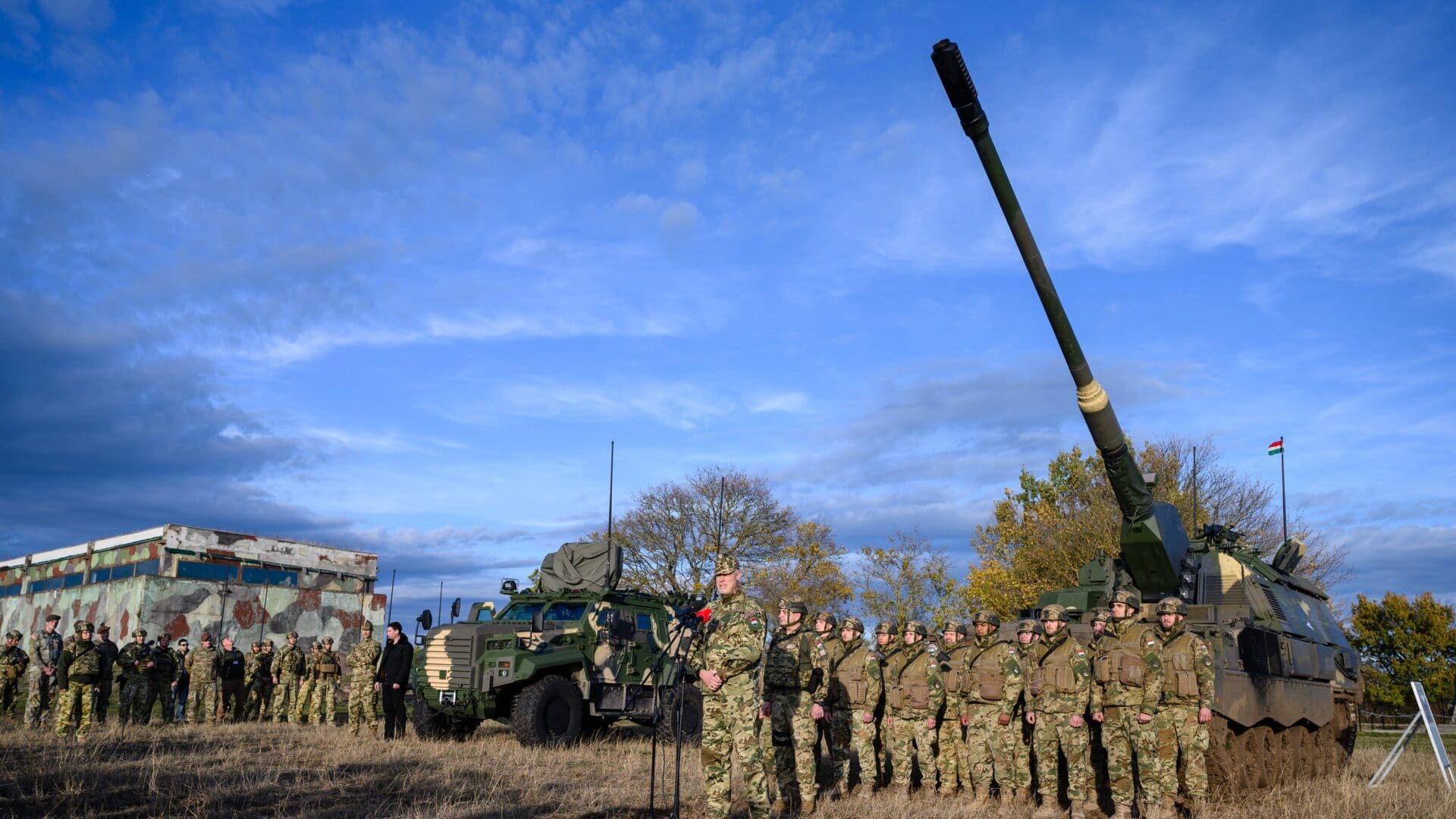In a recent broadcast on M1, Defence Minister Kristóf Szalay-Bobrovniczky spoke about the ongoing efforts in creating a capable and modern military force.
Szalay-Bobrovniczky emphasized the critical question of how many Hungarian youths choose to contribute in some form to ‘the extremely important cause of the homeland’s armed defence.’ To achieve this, he highlighted the necessity of offering the youth the most diverse and appealing forms of participation. Individuals have the opportunity to continue their military service as contracted soldiers throughout their careers, and the reserve forces are also open for those interested.
He underscored their responsibility to guarantee the safety of the Hungarian people in an era of threats. Noting that war has been ongoing in Hungary’s eastern neighbourhood for nearly two years with no apparent end, he pointed out Hungary’s consistent stand for peace, calling for an immediate ceasefire and the initiation of peace talks. The minister emphasized the need to develop internal processes, personnel, organizational, armament, and infrastructural aspects of the Hungarian Armed Forces to present a credible deterrent force emanating from Hungary. In the face of threats, this ensures that Hungary will not become entangled in conflicts jeopardizing the safety of its people.
Szalay-Bobrovniczky also elaborated on the government’s decision to offer a comprehensive aid package to several countries in the Sahel region.
He described the Sahel region as a vast area closer than people might think, highlighting the relative stability in the northern coastal strip of Africa. He acknowledged Libya’s civil war but noted that this area previously played a role in curbing migration, a task it increasingly struggles to perform. South of this region lies the Sahel zone. Szalay-Bobrovniczky stated that it is insufficient to only talk about action; practical measures must be taken. In that spirit, Hungary has proposed a comprehensive aid package to multiple countries in the region, aligning with the efforts of other European nations and NATO member states.
The minister spoke about the aspiration to establish a genuinely powerful, well-armed, and modern military force equipped with a sophisticated and highly digitized arsenal. Achieving this goal requires highly trained soldiers capable of effectively utilizing, operating, and, if necessary, engaging in combat with these tools, which are complex and intricate tasks. He stressed that the remuneration system must be proportionate to these responsibilities.
Hungary also maintains a volunteer reserve force, the members of which it is essentially competing for in the labour market.
Szalay-Bobrovniczky highlighted the significant progress made in the current political cycle, with salary increases occurring for the second time. At the end of 2022, an average increase of around 25 per cent was implemented across all personnel categories, and this is now followed by an average 11 per cent salary increase. The minister stated that the objective of this salary adjustment is to ensure that ‘the Hungarian soldier receives recognition that is existentially stable, secure, and proportionate to the magnitude, prestige, and complexity of the tasks and services, relative to labour market conditions.’
Related articles:
Sources: Hungarian Conservative/M1/MTI








